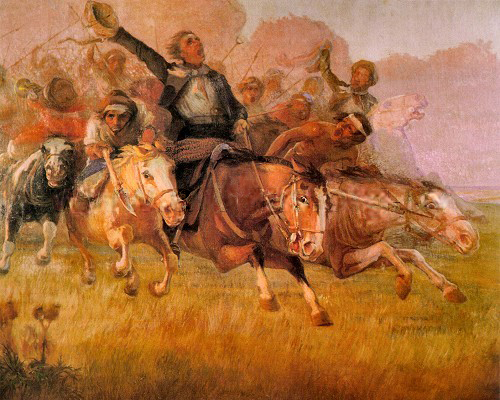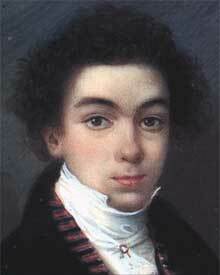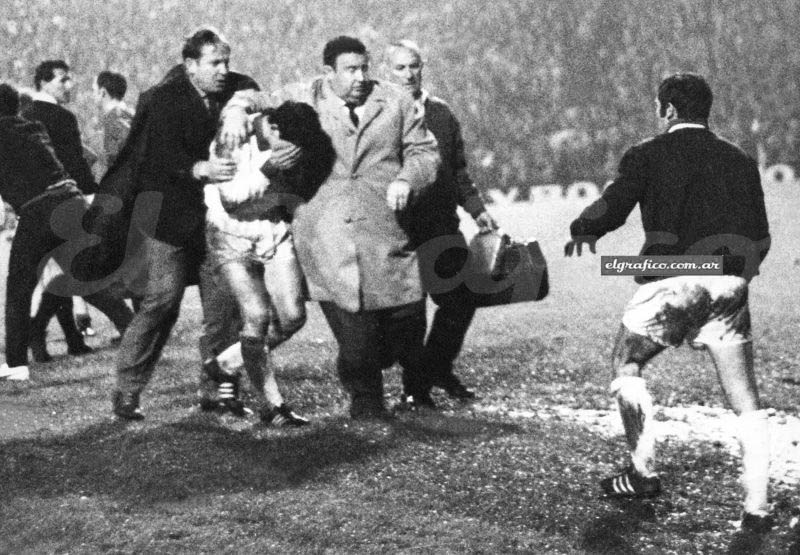|
Copa Libertadores De América
The CONMEBOL Libertadores, also known as the Copa Libertadores de América ( pt, Copa Libertadores da América), is an annual international club football competition organized by CONMEBOL since 1960. It is the highest level of competition in South American club football. The tournament is named after the ''Libertadores'' (Spanish and Portuguese for ''liberators''), the leaders of the Latin American wars of independence, so a literal translation of its former name into English is "''America's Liberators Cup''". The competition has had several formats over its lifetime. Initially, only the champions of the South American leagues participated. In 1966, the runners-up of the South American leagues began to join. In 1998, Mexican teams were invited to compete and contested regularly from 2000 until 2016. In 2000 the tournament was expanded from 20 to 32 teams. Today at least four clubs per country compete in the tournament, with Argentina and Brazil having the most representatives ... [...More Info...] [...Related Items...] OR: [Wikipedia] [Google] [Baidu] |
CONMEBOL
The South American Football Confederation (CONMEBOL, , or CSF; es, Confederación Sudamericana de Fútbol; pt, Confederação Sul-Americana de Futebol) is the continental governing body of football in South America (apart from Guyana, Suriname and French Guiana) and it is one of FIFA's six continental confederations. The oldest continental confederation in the world, its headquarters are located in Luque, Paraguay, near Asunción. CONMEBOL is responsible for the organization and governance of South American football's major international tournaments. With 10 member soccer associations, it has the fewest members of all the confederations in FIFA. CONMEBOL national teams have won ten FIFA World Cups (Brazil five, Argentina three and Uruguay two) and CONMEBOL clubs have won 22 Intercontinental Cups and four FIFA Club World Cups. Argentina, Brazil and Uruguay have won two Olympic gold medals each. It is considered one of the strongest confederations in the world. The Wo ... [...More Info...] [...Related Items...] OR: [Wikipedia] [Google] [Baidu] |
CR Vasco Da Gama
Club de Regatas Vasco da Gama (), commonly referred as Vasco da Gama or simply Vasco, is a professional sports club based in Rio de Janeiro, Brazil. Originally a rowing club, Vasco is mostly known for its football team, who it currently competes in the Brasileirão Série A, the top tier of Brazilian football league and in the Cariocão Série A, the top tier of Rio de Janeiro state football league. Named Vasco da Gama 400 years after 1498 European-Asian sea route, the club was founded in 21 August 1898 as a rowing club by Brazilian workers and Portuguese immigrants tradesmen, and created it football department in 26 November 1915.História 1898–1923' NetVasco.com Vasco da Gama plays their home matches in São Januário stadium since 1927, and also in Maracanã stadium since 1950. Vasco da Gama is one of the most widely supported teams in Brazil and the Americas. According to census and polls, Vasco is the fifth-most supported club in Brazil, with more than 15 million ... [...More Info...] [...Related Items...] OR: [Wikipedia] [Google] [Baidu] |
Apertura And Clausura
The ' and ' tournaments is a split season format for Spanish-speaking sports leagues. It is a relatively recent innovation for many Latin American football leagues in which the traditional association football season from August to May is divided in two sections per season, each with its own champion. ' and ' are the Spanish words for "opening" and "closing". In French-speaking Haiti, these are known as the ' and the ', while in English-speaking Belize, they are respectively the ''Opening'' and ''Closing'' seasons. When used in the United States and Canada, they are known as the ''Spring'' and ''Fall'' seasons. The Americas The ' is held in the first half of the calendar year in Bolivia, Colombia, Haiti, Paraguay and Uruguay while it is held in the second half of the calendar year in Costa Rica, El Salvador, Guatemala, Honduras, Mexico and Nicaragua. The words ' and ' are used in most Latin American countries. Some, however, use different terminology: * Colombia: ' a ... [...More Info...] [...Related Items...] OR: [Wikipedia] [Google] [Baidu] |
José Gervasio Artigas
José Gervasio Artigas Arnal (; June 19, 1764 – September 23, 1850) was a political leader, military general, statesman and national hero of Uruguay and the broader Río de la Plata region. He fought in the Latin American wars of independence against the Spanish Empire, but also against the Portuguese Empire and the centralist government of Buenos Aires in the pursuit of political and civil liberties for the peoples of the Viceroyalty of the Río de la Plata. He is considered a ''Libertador'' of Latin America and a national hero in Uruguay, sometimes referred to as "the father of Uruguayan nationhood". His biggest political project was the creation of the Federal League, a confederation of South American provinces under a federal style of government inspired by the United States. Biography Early life Artigas was born in Montevideo on June 19, 1764. His grandparents were from Zaragoza, Buenos Aires and Tenerife (Canary Islands). His grandparents fought in the Wa ... [...More Info...] [...Related Items...] OR: [Wikipedia] [Google] [Baidu] |
Bernardo O'Higgins
Bernardo O'Higgins Riquelme (; August 20, 1778 – October 24, 1842) was a Chilean independence leader who freed Chile from Spanish rule in the Chilean War of Independence. He was a wealthy landowner of Basque-Spanish and Irish ancestry. Although he was the second Supreme Director of Chile (1817–1823), he is considered one of Chile's founding fathers, as he was the first holder of this title to head a fully independent Chilean state. He was Captain General of the Chilean Army, Brigadier of the United Provinces of the Río de la Plata, General Officer of Gran Colombia and Grand Marshal of Peru. Early life Bernardo O'Higgins, a member of the O'Higgins family, was born in the Chilean city of Chillán in 1778, the illegitimate son of Ambrosio O'Higgins, 1st Marquis of Osorno, a Spanish officer born in County Sligo, Ireland, who became governor of Chile and later viceroy of Peru. His mother was Isabel Riquelme, a prominent local; the daughter of Don Simón Riquelme y Goycole ... [...More Info...] [...Related Items...] OR: [Wikipedia] [Google] [Baidu] |
Pedro I Of Brazil
Don (honorific), Dom Pedro I (English: Peter I; 12 October 1798 – 24 September 1834), nicknamed "the Liberator", was the founder and List of monarchs of Brazil, first ruler of the Empire of Brazil. As King Dom Pedro IV, he List of Portuguese monarchs#House of Braganza (1640–1910), reigned briefly over Kingdom of Portugal, Portugal, where he also became known as "the Liberator" as well as "the Soldier King". Born in Lisbon, Pedro I was the fourth child of King Dom John VI of Portugal and Queen Carlota Joaquina of Spain, Carlota Joaquina, and thus a member of the House of Braganza. When the country was invaded by French troops in 1807, he and his family fled to Portugal's largest and wealthiest colony, Brazil. The outbreak of the Liberal Revolution of 1820 in Lisbon compelled Pedro I's father to return to Portugal in April 1821, leaving him to rule Brazil as regent. He had to deal with challenges from revolutionaries and insubordination by Portuguese troop ... [...More Info...] [...Related Items...] OR: [Wikipedia] [Google] [Baidu] |
José De San Martín
José Francisco de San Martín y Matorras (25 February 177817 August 1850), known simply as José de San Martín () or '' the Liberator of Argentina, Chile and Peru'', was an Argentine general and the primary leader of the southern and central parts of South America's successful struggle for independence from the Spanish Empire who served as the Protector of Peru. Born in Yapeyú, Corrientes, in modern-day Argentina, he left the Viceroyalty of the Río de la Plata at the early age of seven to study in Málaga, Spain. In 1808, after taking part in the Peninsular War against France, San Martín contacted South American supporters of independence from Spain in London. In 1812, he set sail for Buenos Aires and offered his services to the United Provinces of the Río de la Plata, present-day Argentina. After the Battle of San Lorenzo and time commanding the Army of the North during 1814, he organized a plan to defeat the Spanish forces that menaced the United Provinces from ... [...More Info...] [...Related Items...] OR: [Wikipedia] [Google] [Baidu] |
Simón Bolívar
Simón José Antonio de la Santísima Trinidad Bolívar y Palacios (24 July 1783 – 17 December 1830) was a Venezuelan military and political leader who led what are currently the countries of Colombia, Venezuela, Ecuador, Peru, Panama and Bolivia to independence from the Spanish Empire. He is known colloquially as '' El Libertador'', or the ''Liberator of America''. Simón Bolívar was born in Caracas in the Captaincy General of Venezuela into a wealthy criollo family. Before he turned ten, he lost both parents and lived in several households. Bolívar was educated abroad and lived in Spain, as was common for men of upper-class families in his day. While living in Madrid from 1800 to 1802, he was introduced to Enlightenment philosophy and met his future wife María Teresa Rodríguez del Toro y Alaysa. After returning to Venezuela, in 1803 del Toro contracted yellow fever and died. From 1803 to 1805, Bolívar embarked on a grand tour that ended in Rome, where he swore t ... [...More Info...] [...Related Items...] OR: [Wikipedia] [Google] [Baidu] |
Buenos Aires
Buenos Aires ( or ; ), officially the Autonomous City of Buenos Aires ( es, link=no, Ciudad Autónoma de Buenos Aires), is the Capital city, capital and primate city of Argentina. The city is located on the western shore of the Río de la Plata, on South America, South America's southeastern coast. "Buenos Aires" can be translated as "fair winds" or "good airs", but the former was the meaning intended by the founders in the 16th century, by the use of the original name "Real de Nuestra Señora Santa María del Buen Ayre", named after the Madonna of Bonaria in Sardinia, Italy. Buenos Aires is classified as an Global city, alpha global city, according to the Globalization and World Cities Research Network (GaWC) 2020 ranking. The city of Buenos Aires is neither part of Buenos Aires Province nor the Province's capital; rather, it is an autonomous city, autonomous district. In 1880, after Argentine Civil War, decades of political infighting, Buenos Aires was federalization of Bueno ... [...More Info...] [...Related Items...] OR: [Wikipedia] [Google] [Baidu] |
Intercontinental Cup (football)
The European/South American Cup, more commonly known as the Intercontinental Cup and from 1980 to 2004 as the Toyota European/South American Cup (abbreviated as Toyota Cup) for sponsorship reasons, was an international football competition endorsed by UEFA (Europe) and CONMEBOL (South America), contested between representative clubs from these confederations (representatives of most developed continents in the football world), usually the winners of the UEFA Champions League and the South American Copa Libertadores. It ran from 1960 to 2004, when it was succeeded by the FIFA Club World Championship, although they both ran concurrently in 2000. From its formation in 1960 to 1979, the competition was as a two-legged tie, with a playoff if necessary until 1968, and penalty kicks later. During the 1970s, European participation in the Intercontinental Cup became a running question due to controversial events in the 1969 match, and some European Cup-winning teams withdrew.Risol ... [...More Info...] [...Related Items...] OR: [Wikipedia] [Google] [Baidu] |
UEFA
Union of European Football Associations (UEFA ; french: Union des associations européennes de football; german: Union der europäischen Fußballverbände) is one of six continental bodies of governance in association football. It governs football, futsal and beach football in Europe and the Eurasian transcontinental countries of Russia, Turkey, Cyprus, Azerbaijan, Armenia, Georgia, and Kazakhstan, as well as one Asian country Israel. UEFA consists of 55 national association members. Because of the 2022 Russian invasion of Ukraine, FIFA and UEFA suspended all Russian national teams and clubs from any FIFA and UEFA competitions. UEFA consists of the national football associations of Europe, and runs national and club competitions including the UEFA European Championship, UEFA Nations League, UEFA Champions League, UEFA Europa League, UEFA Europa Conference League, and UEFA Super Cup, and also controls the prize money, regulations, as well as media rights to those co ... [...More Info...] [...Related Items...] OR: [Wikipedia] [Google] [Baidu] |
João Havelange
Jean-Marie Faustin Godefroid "João" de Havelange (, ; 8 May 1916 – 16 August 2016) was a Brazilian lawyer, businessman, athlete and centenarian who served as the seventh president of FIFA from 1974 to 1998. His tenure as president is the second longest in FIFA's history, behind only that of Jules Rimet. He received the title of Honorary President when leaving office, but resigned in April 2013. He was preceded by Stanley Rous and was succeeded by Sepp Blatter. João Havelange served as a member of the International Olympic Committee (IOC) from 1963 to 2011. He was the longest-serving active member upon his resignation. In July 2012, a Swiss prosecutor's report revealed that, during his tenure on FIFA's Executive Committee, he and his son-in-law Ricardo Teixeira took more than 41 million Swiss francs (£21m) in bribes in connection with the award of World Cup marketing rights. Early life, professional and Olympic career Havelange was born on 8 May 1916, in Rio de Jane ... [...More Info...] [...Related Items...] OR: [Wikipedia] [Google] [Baidu] |



.jpg)

.jpg)



